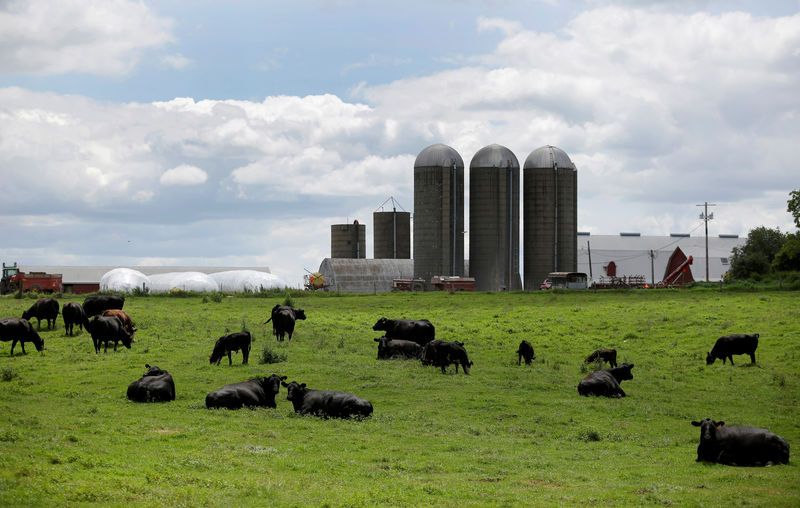By P.J. Huffstutter
CHICAGO (Reuters) - Farmers may need a third round of government aid next year if political in-fighting during the 2020 U.S. election cycle prevents the Trump administration from landing trade deals and reopening top export markets, the head of the largest U.S. farm lobby said on Tuesday.
If the U.S. Congress cannot ratify the United States-Mexico-Canada Agreement (USMCA), then it and the Trump administration could find it difficult to finalize any trade deals with other large markets, including the European Union and Japan, American Farm Bureau Federation President Zippy Duvall said.
Farmers have struggled to stay afloat this year as top U.S. soybean buyer China curtails purchases. They are counting on other markets like Mexico and Europe to buy their agricultural goods.
"The deeper we get into this campaign season, the more difficult it might become" to get USMCA ratified or any trade deals done, Duvall said in an interview.
"Not because of the treaty itself, not because of the need itself, but just because of the rhetoric around the election," Duvall said.
On Tuesday, President Donald Trump, a Republican, formally kicked off his re-election bid and tweeted that the United States and China would restart trade talks. Trump said he would meet with Chinese President Xi Jinping at the G20 summit later this month, and that talks between the two countries would restart after a long lull.
Democratic lawmakers, who took control of the House of Representatives in the 2018 election, have said they want to see changes to the USMCA trade deal.
Duvall said the Farm Bureau is growing concerned that U.S. farmers could potentially enter a third year with restricted access to key export markets - at a time when the farm economy has been battered by low crop prices and is battling flood damage across the Midwest.
The Trump administration has, so far, pledged as much as $28 billion in support payments to U.S. farmers in two separate rounds, to compensate for lower prices for farm goods and lost sales stemming from trade disputes with China and other nations.
"If we're not going to get USMCA finished, if we're not going to get the solution to our problems in China or Japan, then we need to be talking about another payment to try to hold farmers over until that gets done," Duvall said.
But how that would happen - both on a practical and economic level - is unclear, he said.
The hurdle is where the money would come from, Duvall said.
The first tranche, announced in 2018, provided up to $12 billion in aid to farmers to shield them from repercussions of trade disputes between the United States and China, the European Union and others.
The funds came from the Commodity Credit Corporation (CCC), established during the Great Depression in the 1930s, to compensate farmers for an estimated $11 billion in losses due to the trade wars.
That so-called Trump Bump to farmers was supposed to be a one-time occurrence. But earlier this year, the Trump administration announced plans to tap CCC funds a second time to pay out up to $16 billion in farm support - a move that is being scrutinized by other World Trade Organization members, questions submitted to the WTO's quarterly agriculture committee meeting showed on Monday.
The CCC has the authority to borrow up to $30 billion from the U.S. Treasury, according to the U.S. Department of Agriculture.
Given that cap, the Farm Bureau and the farm community have started questioning whether there would be sufficient funds available for a third round.

"This president has continued to back up his word by saying he's going to stand behind the farmer and he's delivered that so far," Duvall said. "I don't know how much longer he can do that."